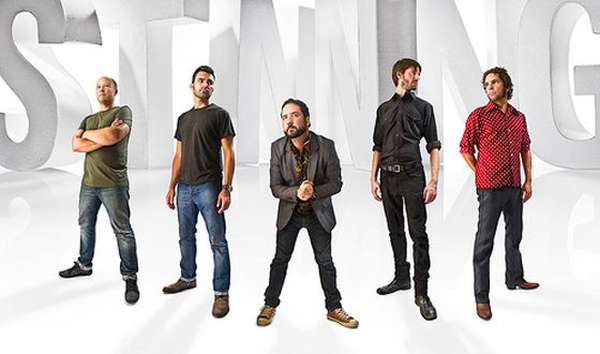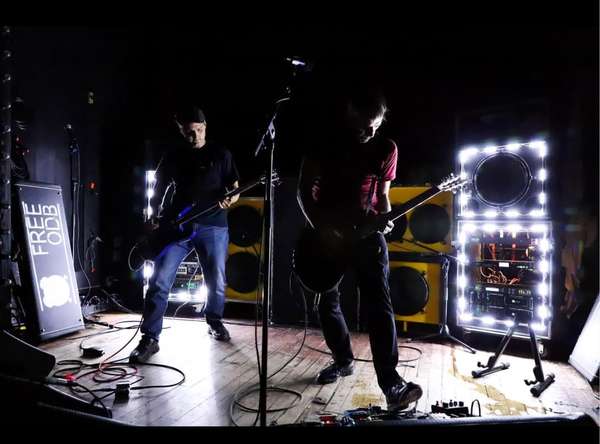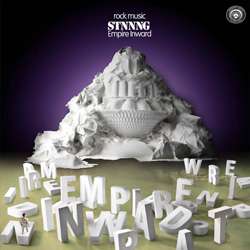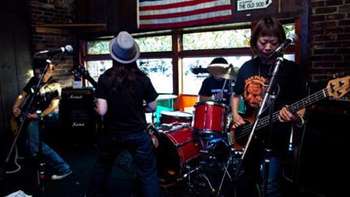We're proud to introduce a new series here at Scene Point Blank: One Question Interviews. Follow us at facebook or twitter and we'll post one interview every Monday-Thursday. Well, sometimes we miss a day, but it will be four each week regardless.
After our social media followers get the first word, we'll later post a wrap-up here at the site. Check out our quickie Q&As below with members of Martyrdöd, STNNNG, Worthwhile Way, and The Austerity Program.
Chris Besinger (STNNNG, vocals)
SPB: What is the worst interview question you’ve been asked?
Besinger: Not sure what the worst question we've been asked is, pretty much if someone is interviewing us I think it’s ok. Sometimes, we do get questions that are thinly-veiled attempts to get a very specific answer, like recently we were asked something to the effect of what our take on certain "big name" Minnesota musicians/bands. I didn't really have a response because the artists they were referring to I feel no kinship with. When I get asked things of that nature I usually try to steer the conversation toward topics that are a bit more relevant to our band and music.
Mikael Kjellman (Martyrdöd)
SPB: If you could release a split with any current band (that you haven’t met), who would it be?
Kjellman: I think it's a tough one to answer, especially says bands that we haven't met. And I had the opportunity to meet with many of my favorite bands already. There are several artists that I admire as different as J Mascis, PJ Harvey, [or] Aphex Twin that I haven't met, but what are the odds, hehe?
So after pondering the question I will say Bastard Noise. I have been a huge fan of Eric Wood and co. since Man Is the Bastard and their latest stuff is just incredible. Also Eric Wood actually contacted us via myspace when we had released the Sekt LP telling us that he was a fan, but I still haven't met him in person. But props to him anyway.
Justin Foley (The Austerity Program)
SPB: What’s the last record you didn’t care for on first listen that has grown on you since?
Foley: Terrence Dixon's From the Far Future, pt. II. Here's the very little that I know about it: Dixon is a legendary Detroit techno DJ who put out From the Far Future Pt. 1 twelve years ago. So over a decade later he comes back with a sequel and it's very minimalist techno - a genre I have bunch of stuff from but zero knowledge. Just now I'm looking at Dixon's description of Pt. 1: "This is about respecting those who came before me...the art of pure Techno...taking what's old and making it new again" - and I realize I am entirely ignorant of what he's talking about.
I was hoping - as always - for a take on something that sounds like the classic Basic Channel records: very drone-y and repetitive techno that's murky and inhuman. This record is more than just monochromatic and after a couple of listens it was going to head into the rearview mirror; it just seemed to have too much improv-y synth stuff breaking things up. But one song – “Lead by Example” - quickly devolves into this insistent 16th note pulse that nailed me after I started to distinguish between the different songs. All the other parts of the song drop out and it's just dukka-dukka-dukka-dukka-dukka-dukka over and over and man I love that shit. This made me go back and listen to the other parts of the song and then go back and really reconsider the rest of the album. Now I love it.
It's always disconcerting when you hear one thing an artist does that really, really grabs you when the rest of their output doesn't. I always wonder: if they did that thing that is so cool, what am I missing in the rest of what's here? In these days of so much music being available, it's about the only way that anything actually turns into a grower. All the other music that doesn't get some hooks into me early on gets discarded as I keep attacking the "to listen to" pile.
Worthwhile Way
SPB: What is the biggest difference you experience between Japanese and American audiences?
Chegeno: I think the biggest difference is the mind of positive or the negative.
Aki: No offense to everybody who japanese and american, Japanese audiences rather has a quiet. American has always cheerful.









